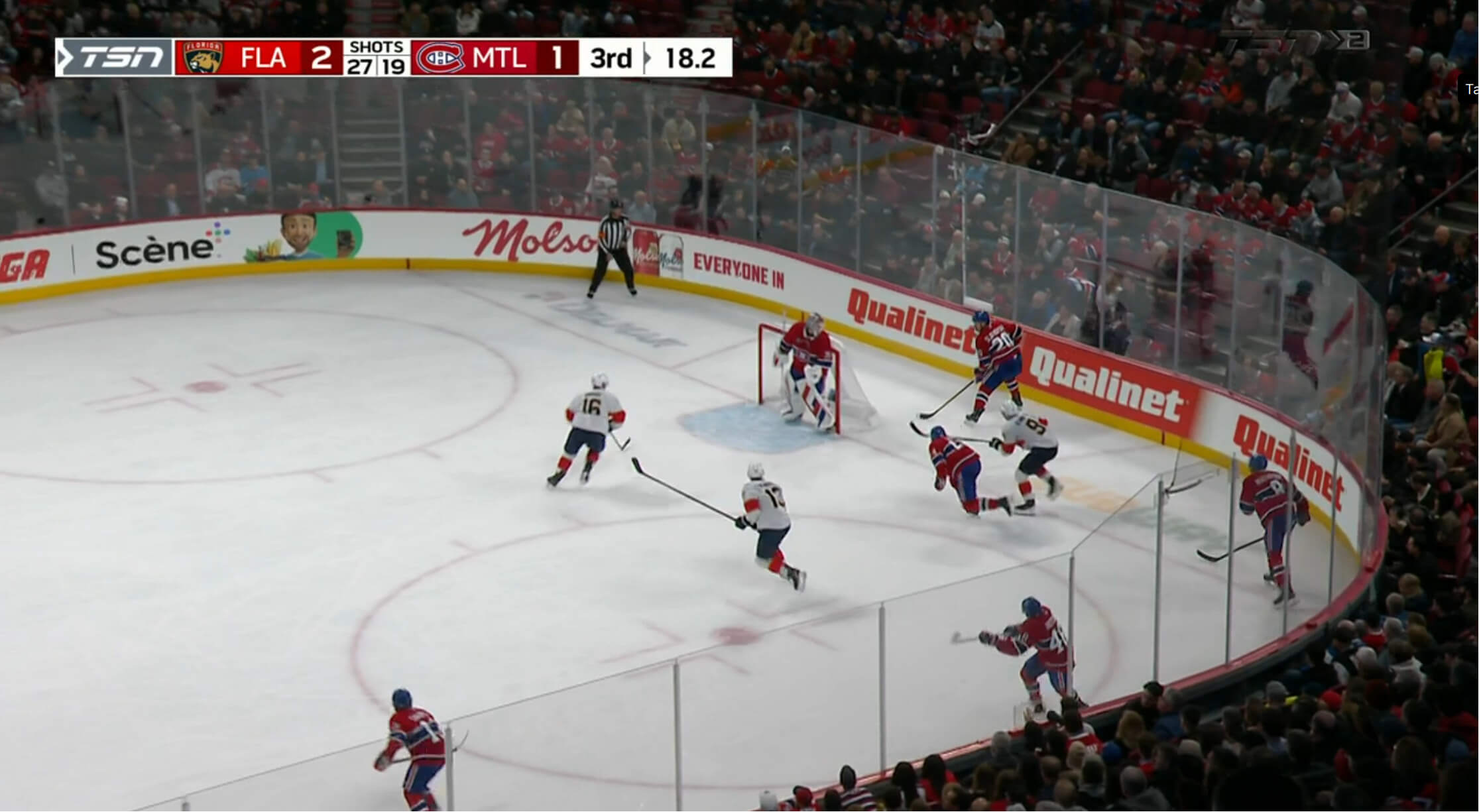
MONTREAL – The diminishing effects of stress on the human brain are well documented. It can lead you to make poor decisions, to do things you otherwise would not.
When Montreal Canadiens forward Patrik Laine iced the puck with 30 seconds left and the goalie pulled and the Canadiens down a goal, it might have been a glaring example of those diminishing effects. That was a moment of high stress, considering where the Canadiens are in their season, how critical points in the standings are to them, and Laine made a poor decision.
Advertisement
But the Canadiens are blessed with two exceptional brains, and luckily they were on the ice at that moment.
Several fans at Bell Centre began heading towards the exits, with a defensive zone draw coming and the Canadiens needing to navigate nearly 200 feet of ice to score when every inch had been a difficult slog against the Florida Panthers in that third period. You could hardly blame them.
But they quickly made a u-turn and returned to their seats.
That goal, in many ways, displayed the best of those two exceptional brains the Canadiens are blessed to have.
When Nick Suzuki lost the ensuing faceoff after that Laine icing to Sam Reinhart in the defensive zone, it might have been game over. A puck battle ensued in the corner of the defensive zone, with Reinhart and Sam Bennett intent on jamming the puck against the boards to kill time.
But as soon as that puck battle was won, as soon as Juraj Slafkovský gathered the puck and began skating it behind the Canadiens’ net – which was also an example of poise under stress – Suzuki and Lane Hutson immediately began doing something somewhat counterintuitive, but something that was called for considering the situation.
They both skated away from the puck as fast as they could.
Hutson skated up the boards to make himself available for a pass, and Suzuki began heading to the weak side of the ice, where there were fewer people. Both Hutson and Suzuki are players that are at their best with the puck on their stick, and both of them skated away from the puck in that moment without a moment’s hesitation.

When Slafkovský alertly identified the option Hutson was presenting him with at the defensive blue line, Suzuki continued going wide, heading to quiet ice, secure in the knowledge Hutson would be advancing the puck.
But when Hutson entered the Panthers zone with only Cole Caufield in support, and especially when Seth Jones got a stick on the puck and very nearly pushed it out beyond the Panthers’ blue line, it would have been very tempting for Suzuki to naturally make his way toward the puck.
Advertisement
Again, stress makes the brain do things it would normally not do.
But Suzuki did not do that.
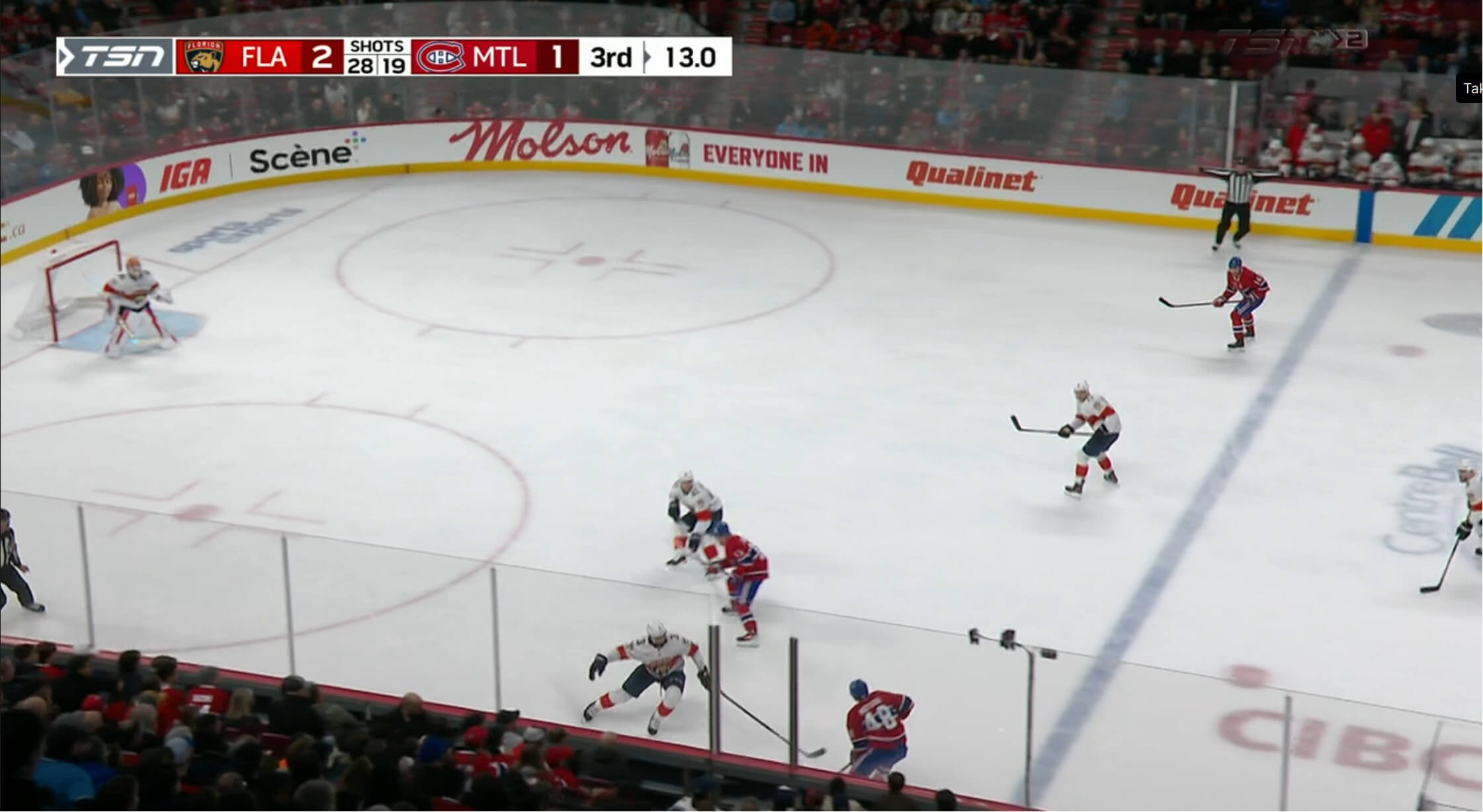
“On the entry I was the wide guy, so when Lane pulled up, just continue my route down the side,” Suzuki said. “I think I’m in a perfect spot, I have the ability to see the whole rink and everyone that’s there. It might be a weird spot to you, but that’s where I wanted to be.”
Suzuki set up at the back post as Hutson tried to navigate the stress of the puck very nearly exiting the zone and needing to get it to the net. He did not see Suzuki was at the back post. He was just hoping someone would be there.
“I didn’t see him,” Hutson said. “I just knew there was not much time and I had to throw it on net.”
Suzuki did not find it the least bit unusual that he would head to that area of the ice in that situation. It is the smart place to go, and he had calculated all of that as he made his way up the ice.
“I think it’s the best place to hang out,” Suzuki said. “We almost had a three-on-two out of the faceoff. Obviously I was cheating pretty good offensively there. When (Aleksander) Barkov scooped it off (the faceoff) and shot it, we were trying to get a three-on-two with the backchecker and I was just driving wide.
“I think if Laner throws it at the net, I’m in a good spot. If he rims it around (the boards), I’m in a good spot. Just kind of had to be there.”
That’s not how every hockey player thinks, especially under the pressure of that situation, under the pressure of this season.
That tying goal was the result of a lucky bounce, yes. But you make your own luck sometimes with smart decisions and smart reads.
And that’s what both Suzuki and Hutson do on a regular basis.
Martin St. Louis can relate to both Suzuki and Hutson for this reason. They have brains that resemble his, and his was elite when he played.
When asked what makes it so that Suzuki often manages to step up when the situation most requires him to step up, St. Louis immediately made reference to Suzuki’s brain.
Advertisement
“He’s got an elite computer, his software is high-end, obviously,” he said. “And he’s got all the tools to do what his brain tells him to do. So he’s very connected that way. And tonight I thought you saw that on many occasions.”
On the tying goal, St. Louis was impressed with how the guys on the ice were tired, the icing didn’t allow him to take a timeout and he basically let them manage the situation on their own. And then Suzuki’s elite computer kicked in.
“Suzy goes 200 feet to the back post trying to make a read based on what he sees,” St. Louis said. “He’s going toward the net, but he has the presence of mind to kind of hide off the back post and let the play come to him, and it did.
“That was a great bounce, but there was somebody on the other side of that bounce in the right spot. I was happy it was him.”
What St. Louis said about Suzuki’s elite computer could just as easily be applied to Hutson.
“I feel like his heart rate’s always the same,” Suzuki said, which is the ultimate compliment of a brain’s ability to manage stress.
Hutson’s current defence partner Kaiden Guhle has been amazed to watch how he has not only improved this season, but how quickly he’s been able to take instruction and apply it to his game immediately. That, too, is a sign of an exceptional brain.
“You tell him one thing, and he might have something to say – not anything bad – but he might tell you what he saw. But then he’ll change it right away,” Guhle said. “He’s so smart. If you ever overhear him and Marty talk, you would say, what the f— are you guys talking about? It’s fun to watch.”
Of course, as soon as overtime began, Hutson and Suzuki conspired to produce the winning goal, with a good dose of Caufield mixed in.
ON SE PEUT PU
SCREAMING CRYING THROWING UP#GoHabsGo pic.twitter.com/v3ulXqSwO3
— Canadiens Montréal (@CanadiensMTL) April 2, 2025
The assist Hutson earned on that goal was his third of the night, his 57th of the season, leaving him three shy of Larry Murphy’s NHL record of 60 in one season for a rookie defenceman with eight games left to play. Hutson has already surpassed Chris Chelios’ franchise record of 55 assists in one season as a rookie defenceman.
Advertisement
But more than the gaudy rookie numbers, and more than Suzuki’s unprecedented offensive numbers – he set a new career high with his 78th and 79th points of the season – watching how the brains of these two players operate under pressure is what is most valuable to what the Canadiens are building here.
There was doubt about Suzuki’s ability to be a true No. 1 NHL centre, and there was doubt about Hutson’s ability to flat out survive in the NHL, let alone be a No. 1 NHL defenceman.
Both of them are erasing that doubt with every passing game in this pressurized environment.
The Canadiens are building around a core that has a number of varied elements. But at the heart of that core are two players who think the game at an elite level, being coached by a coach who also thinks the game at an elite level.
In a game where the margins are so slim, where intelligence can often be a differentiating factor between winning and losing, the Canadiens appear to have an edge.
(Photo of Nick Suzuki and Lane Hutson: Vitor Munhoz/NHLI via Getty Images)
This news was originally published on this post .




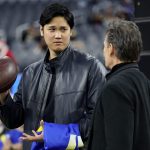

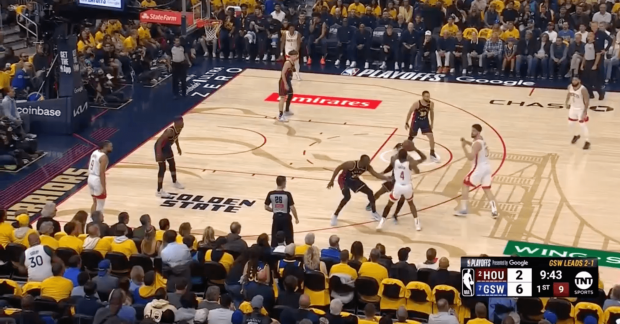
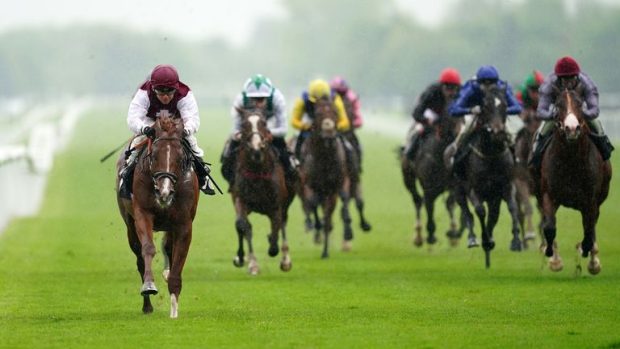
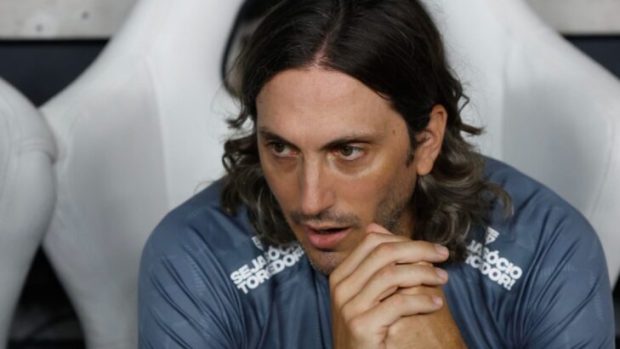
Be the first to leave a comment